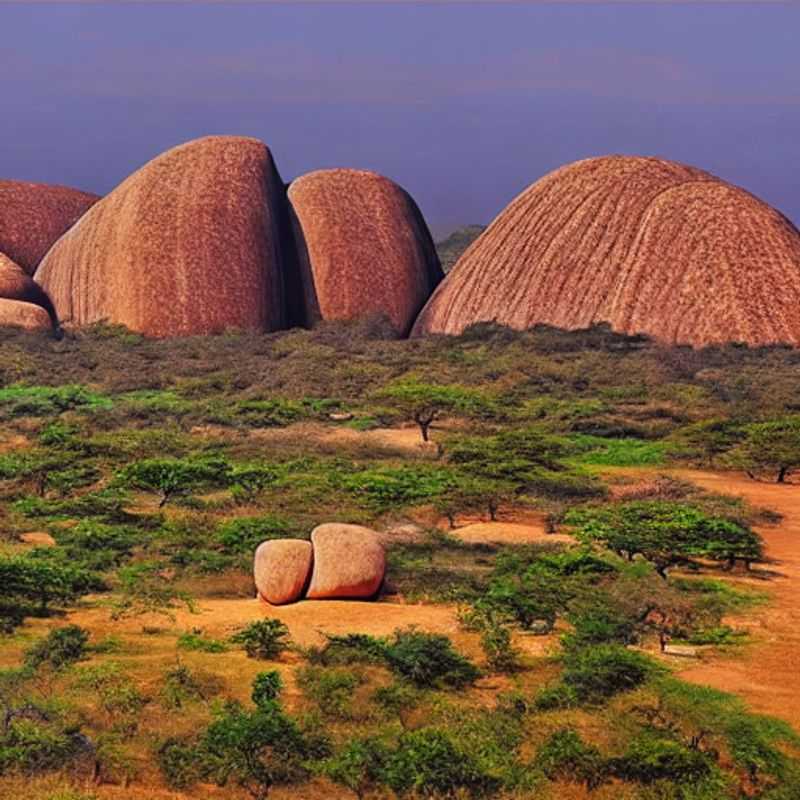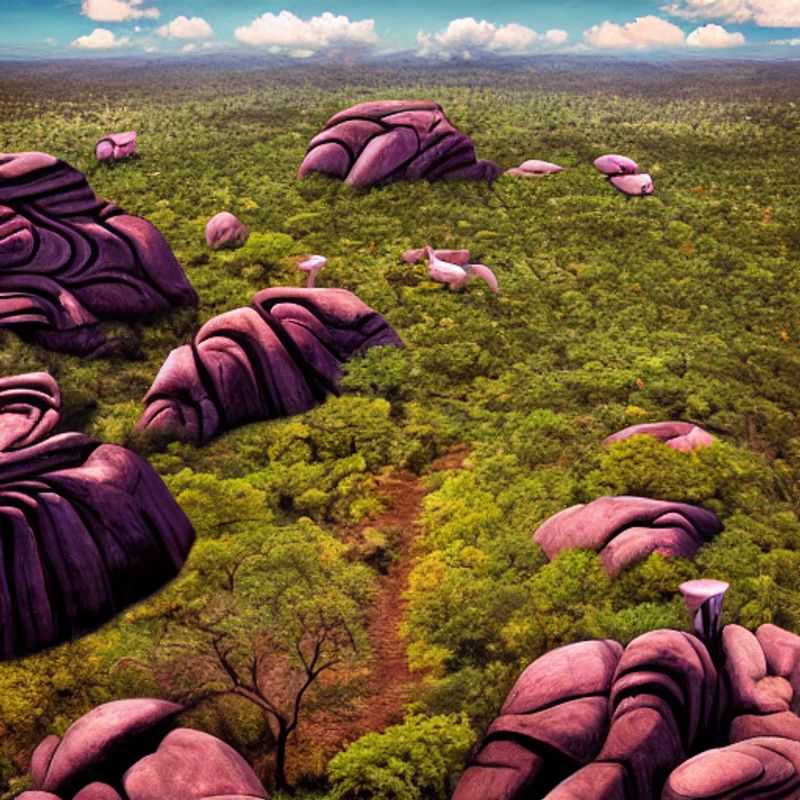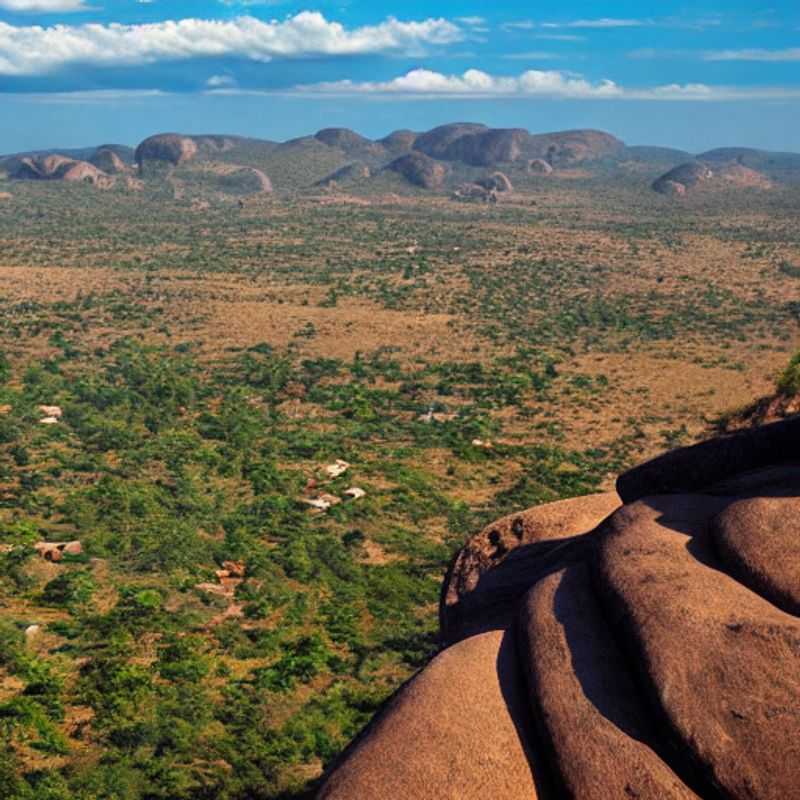Matobo Hills, Zimbabwe: 4 Safety Tips for a Smooth Trip

Matobo Hills, Zimbabwe: Your 2026 Safety Guide
Planning a trip to Matobo Hills, Zimbabwe in 2026 requires careful consideration of safety. While Matobo Hills itself is generally considered a *safe and tranquil destination for tourists*, it's crucial to stay informed about the broader security situation in Zimbabwe. The National Parks are well-managed and have a strong tourist police presence. However, visitors should always exercise common sense precautions, such as avoiding remote areas at night and being aware of their surroundings. It is highly recommended to travel with reputable tour operators who are knowledgeable about current conditions and can ensure your safety. Researching travel advisories from your home country's government is also a *vital step* in preparing for your visit. Overall, with proper planning and awareness, Matobo Hills offers a *remarkable and secure travel experience* for those seeking its unique natural and cultural wonders.

You may also like
Matobo Hills Mysteries & Mayhem: Is Zimbabwe's Ancient Heart Safe for Your Travels?
Zimbabwe's Political Landscape: A Traveller's Guide to Navigating the Hills (and the Headlines)
Stone-Age Secrets & Modern Safety: Your Practical Guide to a Peaceful Matobo Hills Adventure
From Ancient Legends to Modern Precautions: A Balanced Look at Safety in Zimbabwe's Matobo Hills
Tracking the Truth: Political Stability, Safety Tips & the Enigmatic History of Matobo
Beyond the Myths: A Realistic Assessment of Safety and Political Stability in Zimbabwe's Matobo Hills
Matobo Hills: Where History Meets Hiking...and How to Stay Safe While You Explore
Exploring Zimbabwe's Ancient Wonders: Prioritizing Safety in the Matobo Hills
The Matobo Hills' Double-Edged Sword: Uncovering History While Staying Safe in a Dynamic Political Environment
Ancient Spirits & Modern Security: A Traveler's Guide to Responsible Exploration of Matobo Hills, Zimbabwe
Jambo, fellow adventurers! Your intrepid guide, seasoned in the mystical mists of Matobo Hills, Zimbabwe, is here to illuminate your spring sojourn! Four of you, two couples – perfect for sharing stories (and maybe some delicious nyama choma!). Zimbabwe boasts a generally stable political climate, allowing you to focus on the breathtaking scenery and ancient secrets rather than political unrest.
Spring in Matobo is a symphony of colours, from the vibrant jacaranda blossoms to the emerald hues of the grasslands. Expect daytime highs around 25°C (77°F), perfect for exploring the ancient rock formations and cave paintings. Evenings can get cool, so pack a light jacket. The Matobo Hills National Park itself is a UNESCO World Heritage Site, offering stunning landscapes and incredible wildlife viewing opportunities – think majestic granite boulders, roaming herds of zebra, and even the elusive leopard if you're lucky!
Now, about the cultural immersion…The local Ndebele people are renowned for their vibrant traditions and stunning beadwork. You'll find the people welcoming, though respectful observation of their customs is key. A respectful greeting (Sawubona) goes a long way! Their music, often featuring traditional instruments like the mbira (thumb piano), will fill the air, creating a captivating soundscape.
Let's talk food! Nyama choma (barbecued meat) is a must-try – succulent, flavourful, and a perfect celebratory meal after a day of exploring. Sadza (thick maize porridge) is a staple, often served alongside various stews and vegetables. For the adventurous, try mopane worms – a local delicacy! Expect to spend around $30-$50 per day per couple on food, depending on your choices.
Transportation within Matobo can be arranged with local guides or through pre-booked tours. Expect to pay around $100-$150 per day for a private vehicle and guide, which is ideal for your group size, allowing for flexibility and personalized explorations. You can also utilize local taxis but pre-negotiate fares.
Accommodation ranges from comfortable lodges to more rustic campsites. Budget around $100-$200 per night per couple for a comfortable lodge with amenities. Entrance fees for the National Park are relatively inexpensive, usually under $20 per person.
Activities will also vary in costs. Guided hikes to explore ancient caves and rock art will cost around $50-$80 per couple. A visit to a local village for cultural experiences can be arranged for approximately $30-$50 per couple.
Important Note: Always check with your doctor regarding necessary vaccinations and malaria precautions. Remember to drink bottled water and stay hydrated during your adventures. And above all, engage respectfully with the local culture and environment.
Total Estimated Cost for a 5-Day Trip (for two couples):
Food: $1500 - $2500
Accommodation: $1000 - $2000
Transportation and Guides: $2500 - $3750
Activities & Entrance Fees: $500 - $800
Total: $5500 - $9550 (approximate, varies based on your choices)
So there you have it! Your thrilling Matobo adventure awaits. Asante sana, and may your journey be filled with wonder and laughter! Remember to share your amazing pictures on social media using

You may also like
Matobo Hills, Zimbabwe 2026: Backpacker's Challenge or Reward?
Matobo Hills, Zimbabwe, presents a unique blend of challenges and rewards for the intrepid backpacker in 2026. Its rugged granite kopjes and vast wilderness demand a high level of preparedness and physical fitness. Navigating the terrain can be demanding, with steep ascents and descents requiring sturdy footwear and careful planning. The weather can also be a factor, with intense heat in the dry season and potential for sudden thunderstorms during the rains, so packing appropriate clothing and ample water is crucial.
However, the rewards for those who embrace these challenges are immense. Matobo Hills offers an unparalleled opportunity to connect with ancient San rock art sites, some of the most significant in Southern Africa. The chance to witness this millennia-old artistry is a truly enriching experience. Furthermore, the park is a haven for wildlife, offering the possibility of spotting rhinos, leopards, and a diverse array of birdlife. The sheer beauty and solitude of the landscape, with its iconic balancing rock formations, provide a profound sense of peace and awe. For the adventurous backpacker, Matobo Hills in 2026 promises an unforgettable journey into the heart of Zimbabwe's natural and cultural heritage, provided they come equipped with respect for the environment and a spirit of adventure.